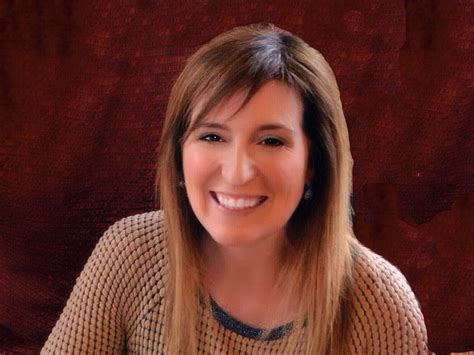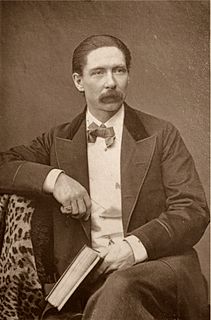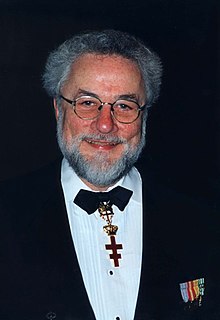A Quote by Michael Scott
Magic is really only the utilization of the entire spectrum of the senses. Humans have cut themselves off from their senses. Now they see only a tiny portion of the visible spectrum, hear only the loudest of sounds, their sense of smell is shockingly poor and they can only distinguish the sweetest and sourest of tastes.
Related Quotes
I argue that science would be much richer if it were multisensory. The problem with instrumentation is that instruments, unlike our senses, can be monosensory. Since the discovery of the electromagnetic spectrum - which is really the discovery that all energy coming from something has a wave form - in theory we could image anything along that spectrum. In fact, we don't, because only certain parts of the spectrum have been instrumentalized. But the new thing is computerization. You can take all the data, the measurement of the frequencies, and transform it into an image.
Everything we think we know is really only perceived by our senses,' he explains patiently. 'The sounds we hear are just waves in the air; colors are electromagnetic radiation; your sense of taste comes from molecules that match a specific area on your tongue. Hey, if our eyes could access the infrared part of the light spectrum, the sky would be green and trees would be red. Some animals see in completely different ways, so who knows what colors look like to them. Nothing is really how we perceive it.
Our physical senses and our embodied brains allow us to perceive only a small fraction of reality. We cannot see microbes or untraviolet light, for example. We can hear only a small range of sounds. When we try to describe the otherworld of energies and spirits, we are limited not only by our bodily constraints but by the expectations, assumptions, and language patterns ingrained in us by the culture we were raised in.
With five feeble senses we pretend to comprehend the boundlessly complex cosmos, yet other beings with wider, stronger, or different range of senses might not only see very differently the things we see, but might see and study whole worlds of matter, energy, and life which lie close at hand yet can never be detected with the senses we have.
All men naturally desire knowledge. An indication of this is our esteem for the senses; for apart from their use we esteem them for their own sake, and most of all the sense of sight. Not only with a view to action, but even when no action is contemplated, we prefer sight, generally speaking, to all the other senses. The reason of this is that of all the senses sight best helps us to know things, and reveals many distinctions.
Brutes gaze on sights, they are arrested by sounds; and what they see and what they hear are sights and sounds only. The intellectof man, on the contrary, energises as well as his eye or ear, and perceives in sights or sounds something beyond them. It seizes and unites what the senses present to it; it grasps and forms what need not be seen or heard except in detail. It discerns in lines and colors, or in tones, what is beautiful and what is not. It gives them a meaning, and invests them with an idea.




































